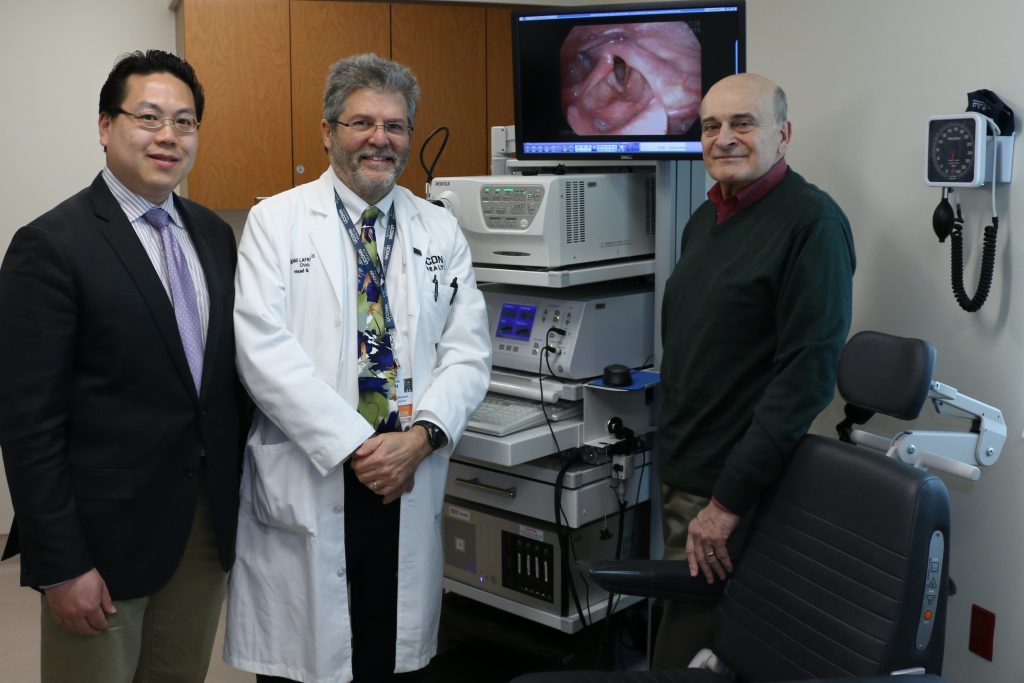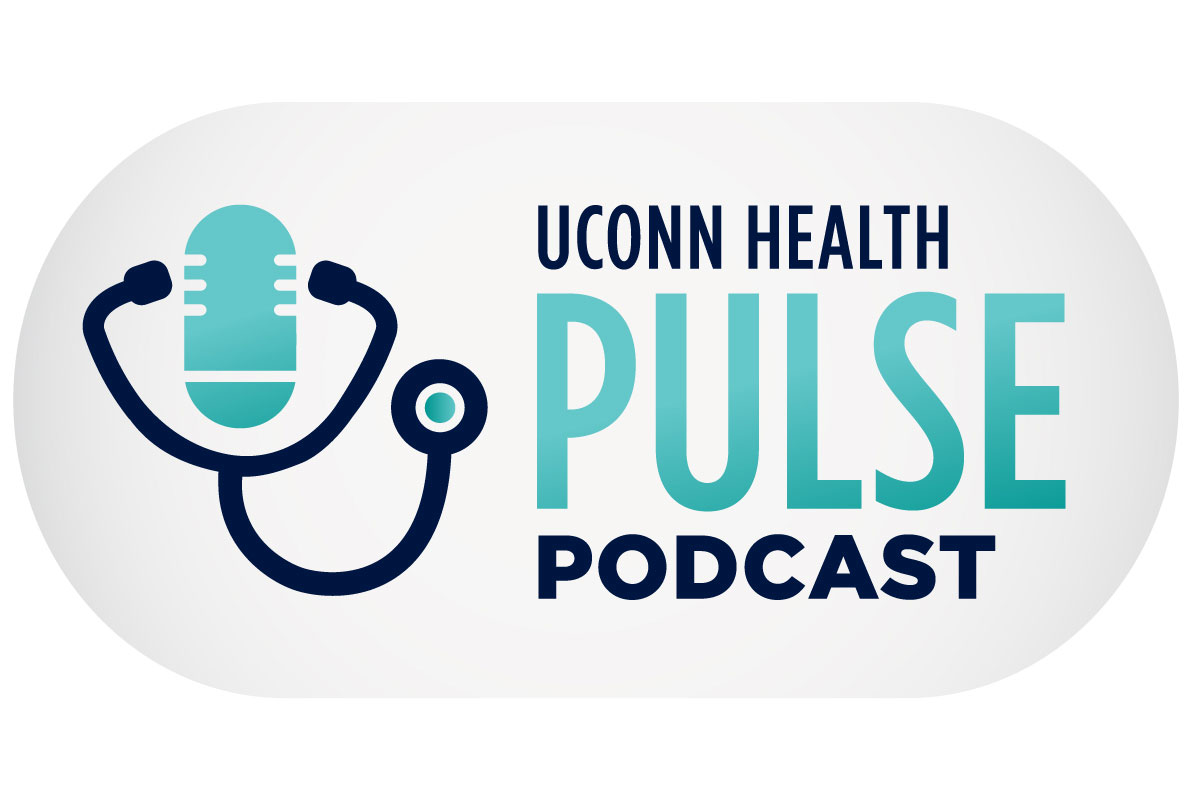A healthy-weight adult can have 30 billion fat cells in his or her body, while someone who is considered obese can carry as many as 300 billion.
Although most people have a strong dislike for the extra body weight they carry around, what if your fat could actually be used to improve your body’s health?
“There has been a growing trend in plastic surgery to use fat cells and fat grafts for both cosmetic applications, such as facial wrinkle reduction, and in reconstructive purposes, like for breast cancer or traumatic defects,” says Dr. Andrew Chen, chief of the Division of Plastic Surgery at UConn Health. “We are continuously finding new ways to leverage the power of fat in surgery to meet a patient’s unique health needs.”

Now one patient’s lost voice has been restored, thanks to his very own fat cells being put to good use.
In 2013, Ed Favolise, 70, a retired superintendent of schools in Connecticut, had surgery to remove a precancerous tumor from his upper-right chest. However, part of the tumor encased a nerve in control of his right vocal cord that became severed during surgery, leaving his right vocal cord paralyzed in an open position and a major gap between his two vocal cords.
For three years, while pursuing all possible remedies at three different medical centers, Favolise was left nearly speechless due to his paralysis. His voice was limited to a squeaky, high-pitched whisper. He also could only use his severely weakened voice for short periods of time before becoming hoarse or completely losing his voice.
“Ironically my life’s work as a teacher, coach, and superintendent of schools was mainly talking to students, teachers, parents, and legislators – plus I am a very social person,” says Favolise. “Abruptly having my voice silenced from surgery left me with a very low quality of life, and when I was out socializing I would be left out, just sitting and listening to my friends talking.”
Even five surgeries and continuous voice therapy at two different highly rated New England hospitals couldn’t successfully bring his paralyzed vocal cord completely back to its normal, centered position, permitting it to vibrate off his left vocal cord so he could fully speak again.
My experience shows that sometimes you need to be willing to take a chance on a pretty surprising, promising alternative medical solution and procedure. — Ed Favolise
Last year, Favolise turned to the prestigious Voice Center at UConn Health led by Dr. Denis Lafreniere, chief of the Division of Otolaryngology, and to the care of speech pathologist Janet Rovalino, who diagnosed his excessive outward airflow as stemming from a gap that was still present between his vocal cords.
Vocal cords, both left and right, only function normally when they come together completely in unison to valve a person’s outward airstream to create sound, which can be used for purposes of speech.
ENT specialist Lafreniere teamed up with plastic surgeon Chen to try to offer an innovative solution to Favolise’s problematic right vocal cord, and fill the remaining gap between his right and left vocal cords.
The solution? Fill the edge of the right vocal cord with fat cells to plump it up permanently into the proper position where it comes in contact with the left vocal cord.
“I was very surprised by the plans to use my own fat as a cure,” says Favolise. “But I was so frustrated with my inability to speak, I was receptive to anything that might work to get my voice back.”
While Favolise was in the operating room at UConn Health for the procedure, Lafreniere and Chen withdrew fat cells from Favolise’s abdomen, processed and measured them to make sure they had enough pure fat cells, and placed them directly into his injured vocal cord to fatten it up via a needle injector through a laryngoscope.
“My speech improved immediately and significantly,” says Favolise. “The power of my own fat cells is just remarkable. My right vocal cord, which was once paralyzed, is now properly and permanently centered in place where it should be, so it can vibrate correctly against my left vocal cord and permit me to speak normally.”
Says Lafreniere, “We are very happy to have helped Ed and so many patients like him get their voices, lives, and careers back.”
As a proud UConn Husky with two graduate degrees in education, Favolise is very thankful to his alma mater UConn and its academic medical center for giving him his voice back.
“For the first time in three years I am finally now able to have normal conversations with my wife, family, colleagues, and friends,” he says. “Thank you UConn, Drs. Lafreniere and Chen, and speech pathologist Janet Rovalino. You’ve restored my quality of life to what it was before my right vocal cord was damaged.”
Favolise advises others who are looking for medical help for an ongoing health issue not to stop until they’ve exhausted all their medical options. “My experience shows that sometimes you need to be willing to take a chance on a pretty surprising, promising alternative medical solution and procedure.
“Plus,” he adds, “I’m happy the fat cells used in my throat came from my abdomen area and not my butt, like I originally thought.”


